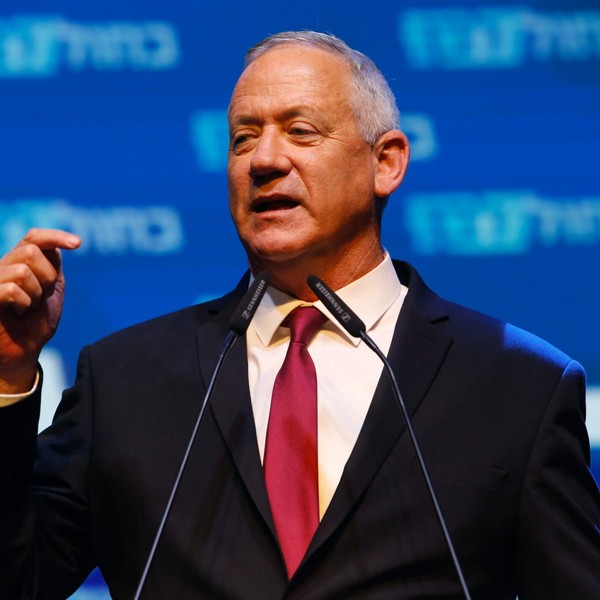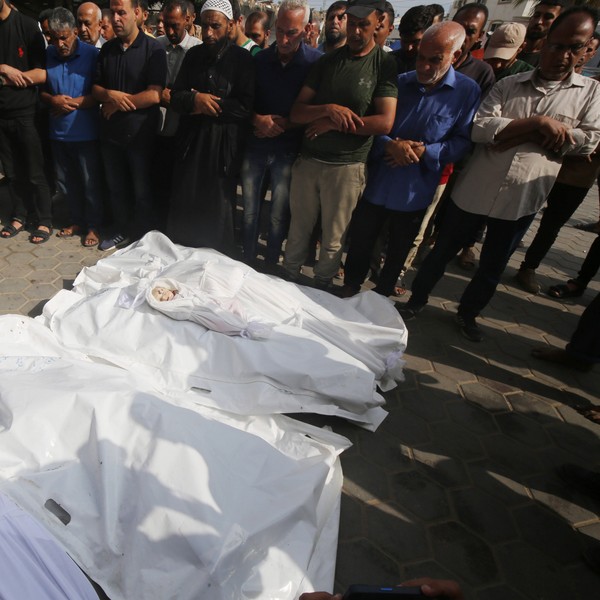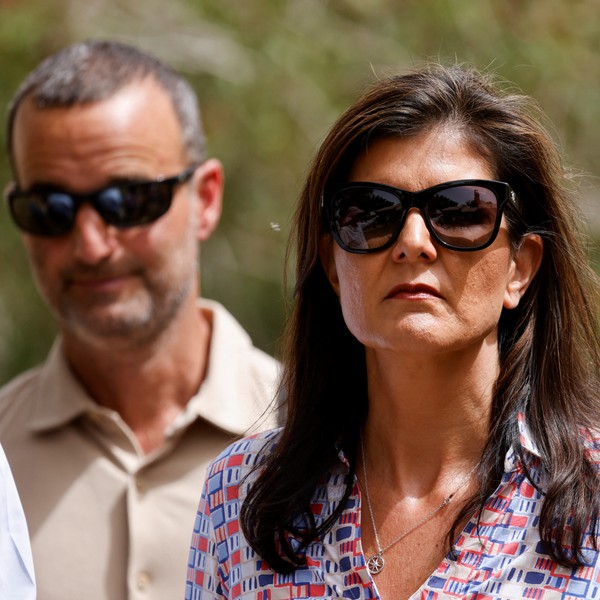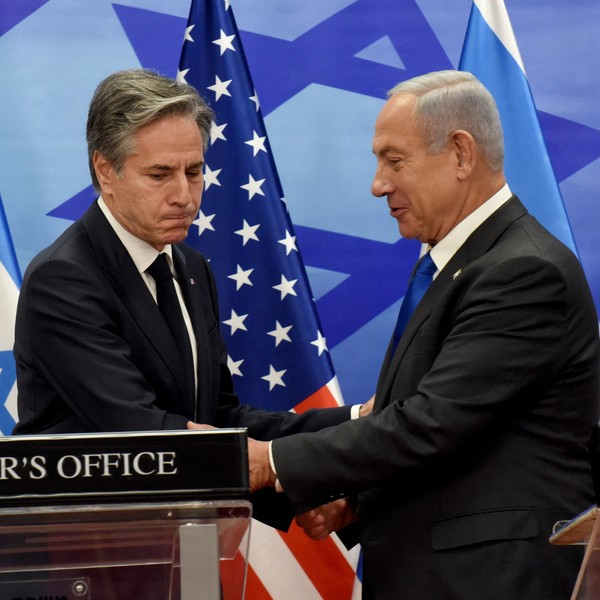While the Lebanese Hezbollah movement and Israel have gradually escalated their cross-border attacks, the situation has been relatively under control, with a full-scale war being averted — so far.
This delicate balancing act however may be facing its toughest test yet since the onset of the latest round of hostilities. This would include the killing of Taleb Abdullah — reportedly the highest ranking commander killed since Oct. 7 — in a blast overnight Wednesday. Hezbollah has responded by sending a barrage of missiles into Northern Gaza, according to reports.
Up until now Hezbollah officials have maintained that major escalation remains unlikely. Washington for its part is continuing its efforts to keep the situation under control.
Hezbollah plays down likelihood of full-scale conflict
Officials from the Shiite group argue that an all-out war on the Lebanese-Israeli front remains unlikely notwithstanding the latest Israeli threats. According to a Hezbollah representative who spoke to RS on condition of anonymity, recent statements out of Israel reflect bluster more than an imminent change of strategy towards a more expansive military operation.
“There have been a lot of threats made” remarked the official, adding that Israel, however, still hasn’t made the decision to alter the its approach on the Lebanese front.
“In practice the odds of a full-blown war erupting have not increased,” he said.
Notwithstanding these estimates, Hezbollah has recently unveiled military capabilities that appear designed to further deter Israel from launching a wider military campaign. The movement conducted a twin kamikaze drone attack targeting the northern Israeli town of Hurfeish, which led to the death of at least one Israeli soldier.
But perhaps the biggest development in this regard was Hezbollah’s announcement it had opened fire on Israeli warplanes. The Shiite group declared in a statement that it had launched anti-aircraft missiles at enemy army jets that had violated Lebanese airspace, forcing them to retreat. The IDF confirmed the group did indeed use such weapons but that its planes were never under any threat.
While Hezbollah claims it has targeted and shot down Israeli drones in the latest round of hostilities, this would mark the first time it has fired upon piloted aircraft, revealing that it may have in its arsenal the means to seriously undermine Israeli combat operations in the event of a wider conflict.
The Hezbollah official affirmed that such action is a warning shot for Israel not to escalate towards a full-blown war.
Meanwhile, military experts say that the Shiite group sought to convey to Israel that its combat operations will face unprecedented constraints should it opt for a wider operation.
“The message is that Israel won’t have complete control of the skies,” said retired Lebanese Army General Elias Farhat in an interview with RS, adding that Israeli warplanes may be forced to fly at an altitude above eight kilometers to stay out of the range of Hezbollah’s missiles.
“This would prevent the aircraft from providing air-cover to troops on the ground carrying out a land offensive into Lebanese territory,” he said.
Importantly a limited ground operation into southern Lebanon is one of the demands being made by proponents of a larger-scale war with Hezbollah.
Israel threatens all-out war
Far-right Israeli figures meanwhile have called for war on Lebanon with the aim of eliminating Hezbollah. National Security Minister Itamar Ben-Gvir appeared to demand such a measure during a visit to the northern settlement of Kiryat Shmona after bushfires engulfed large areas in Israel’s north following Hezbollah rocket attacks.
“Now the IDF’s job is to destroy Hezbollah,” said Ben Gvir, adding that “they’re burning us here. … All Hezbollah strongholds should be burned they should be destroyed. War!”
Finance Minister Bezalel Smotrich issued a similar call, asserting that the Israeli military should strike Beirut, which he called “the capital of terrorism.”
These remarks mark the first time since the start of the latest hostilities in which members of Israel’s far right have unequivocally advocated for a full-scale war on the Lebanese front.
“The far-right Israeli ministers, Smotrich and Ben Gvir are isolated from most Israelis when they advocate permanent Israeli rule of Gaza and treat the hostage issue as a secondary manner,” said Ian Lustick, professor emeritus of Middle East studies at the University of Pennsylvania.
“But with 70,000 Israelis displaced from communities in the north, with fires lit by Hezbollah raging in the Galilee,” he added, “these ministers can position themselves closer to the center of gravity of public opinion by calling for the destruction of Hezbollah and much of Lebanon,” particularly given there is also strong support for a major operation against Lebanon within the Israeli military.
Israeli military officials meanwhile have declared the army’s readiness to launch a wider-scale operation against Hezbollah. Army Chief of Staff Herzi Halevi said that a decision on how to deal with the Lebanese front must be made soon.
“The Israeli army is very prepared for this decision,” said Halevi.
A full-scale conflict on the Lebanese-Israeli front being imminent is consistent with previous American assessments. Media reports earlier this year quoted senior U.S. officials voicing their concern that Israel may launch a ground operation in the late spring or early summer.
Israeli Prime Minister Benjamin Netanyahu however has stopped short of openly threatening an all-out war on Lebanon. Speaking on a visit to Israel’s northern front, Netanyahu expressed the country’s readiness for “a very intense operation,” vowing to use all possible means to restore calm in the north.
Israeli military action on the Lebanese front also remains largely unchanged, as combat operations continue to be confined mostly to surgical strikes targeting Hezbollah commanders and fighters, without causing heavy casualties amongst the civilian population.
The Israel military has reportedly however used phosphorus gas in recent air operations. According to Lebanon’s National News Agency, phosphorus shells were dropped on Lebanese southern villages, causing fires to erupt. This appeared to be a retaliation for the fires caused by the Lebanese movement’s operations targeting the other side of the border.
Israel’s use of phosphorous gas in attacks on Lebanon during the current round of hostilities has been documented by Human Rights Watch, which warned in a recent report that the use of this substance poses a risk to civilians.
Washington intensifies efforts to avert escalation
The Biden administration for its part is doubling down on its efforts to prevent a larger flare-up on the Lebanese-Israeli front. According to Lebanese media reports senior American officials have conducted high-level contacts in an attempt to avert a wider conflict. President Biden’s special envoy for energy and infrastructure Amos Hochstein — the administration’s point person for Lebanon — has reportedly participated in these talks.
Washington’s concerns now appear focused on the repercussions of a limited war in which Israel could launch a land incursion into Lebanese border areas.
According to Axios, U.S. officials warned Israel that even such limited operations could end up igniting a regional conflict that would draw in Iran and allied groups in Yemen and Iraq.
The Hezbollah official confirmed the likelihood of regional conflict in the event of major escalation.
“Iran will intervene, as will certainly allies in Yemen and Iraq,” he said. Syria, the official added, will also become a party to the conflict if a full-scale war were to erupt between Hezbollah and Israel.
“The Americans know that a larger war on the Lebanese front would mean a regional war,” he said.
- Why Hezbollah doesn't want a full-scale war. Yet. ›
- Hezbollah leader ups ante after attack on Iranian consulate ›















